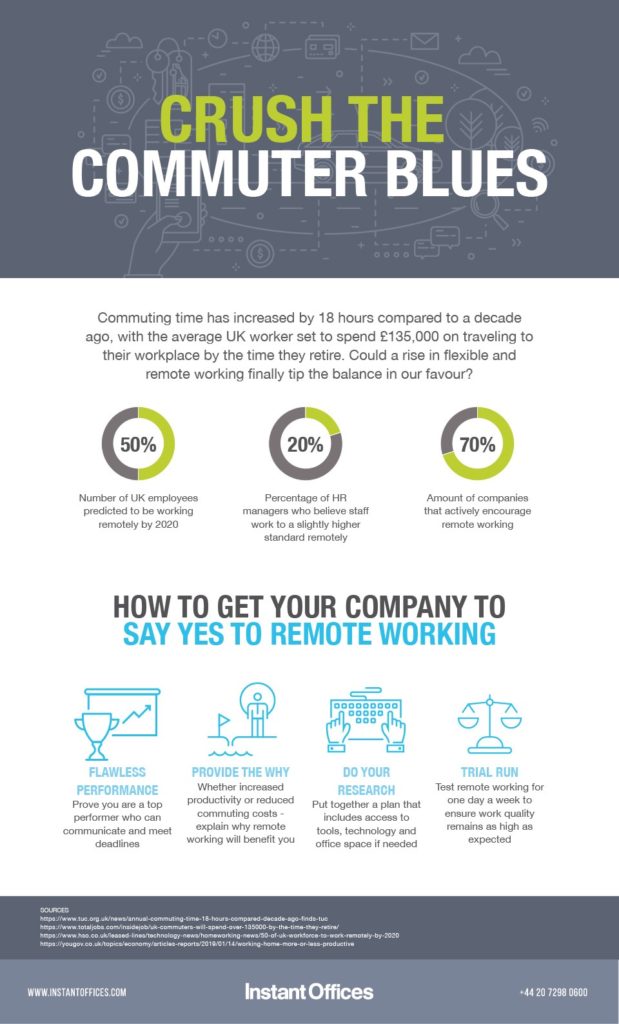Is your Commute Worth the Pain? The True Cost of Getting to Work

For UK workers, commuting time has increased by 18 hours compared to a decade ago, according to the TUC. A study by Totaljobs shows the average worker is set to spend a whopping £135,000 on their commute by the time they retire.
Following these findings, Instant Offices investigates which cities around the world are the best and worst for commuting and whether a rise in flexible and remote working can finally tip the balance for UK workers.
According to the Department for Transport, London by far has the longest commute with the average worker spending 46 minutes per trip or a roundtrip of 92 minutes each day from the workplace. With so much time spent simply travelling to and from work – around 400 days for the average person – it’s no surprise that the topic of how to reduce commuting time is so popular.
One study by Focus considered various factors, including journey times and cost of travel cards, to rank the best and worst cities for commuting in the world. Unsurprisingly, London tops the list, with Miami USA a close second.
|
BEST CITIES FOR COMMUTING
|
WORST CITIES FOR COMMUTING
|
|
Nice, France
|
London, UK
|
|
Cuenca, Ecuador
|
Miami, USA
|
|
Bilbao, Spain
|
Cali, Columbia
|
|
Toulouse, France
|
Brasilia, Brazil
|
|
Catania, Italy
|
Toronto, Canada
|
Nice in France took the top spot as the best city for commuting. Travel cards in Nice cost more than four times less than they do in London, and average travel time is around 22 minutes a trip, or just 44 minutes each day compared to over 80 for London.
Regionally, Leicester, Bristol and Edinburgh topped the rankings as the easiest commutes in the UK, with London, Birmingham and Manchester coming in last.
There is a large body of research into the negative impact of long commuting times on employee physical and mental health. One report by the Royal Society for Public Health shows the following:
- More than half of commuters say travel increases stress levels.
- Two in five commuters say it decreases the amount of time they are physically active.
- Over one-third of commuters sleep less.
In addition to the impact on mental wellbeing, excessively long commutes over a long period can also reduce employee happiness and negatively impact health due to lower physical activity.
There is also a loss of productivity to consider among talent. If one employee given up to two hours of their day back, ten hours of potential productivity could be released back into the workplace each week, which equates to a potential 40 hours a month.




